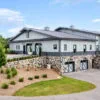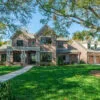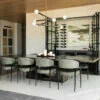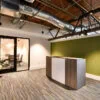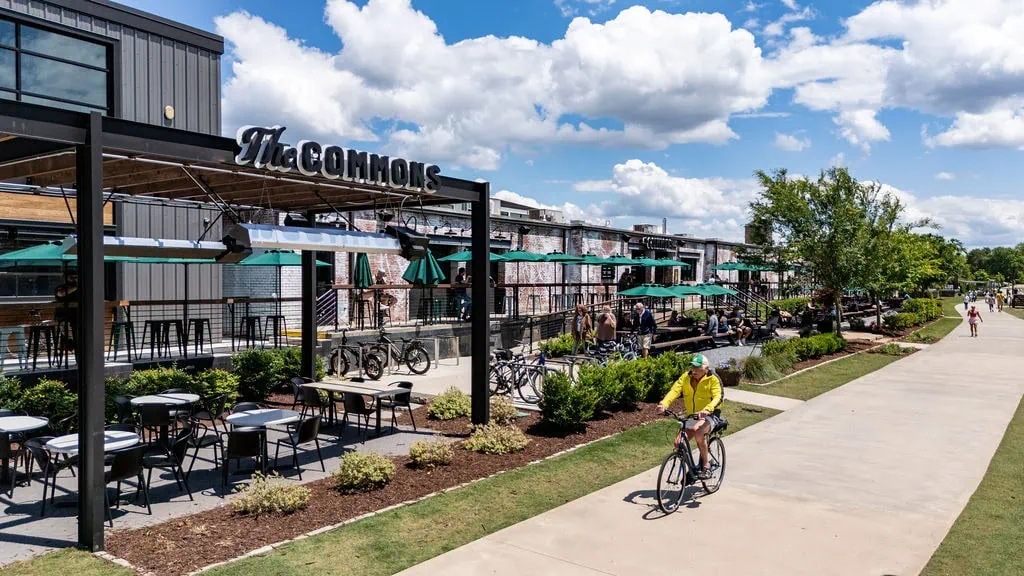
The commercial construction industry continues to evolve, with 2025 bringing new trends that balance design, technology, and sustainability. From flexible office layouts to smarter building practices, businesses are rethinking how their spaces function and perform.
Staying ahead of these changes is key to creating workplaces that support productivity, employee well-being, and long-term growth. Keep reading to learn which trends are shaping the future of commercial construction and how Ridgeline can help bring them to life.
Emerging Trends in Commercial Construction
The way commercial spaces are designed and built continues to adapt with changing business and lifestyle needs. Here are some of the key trends shaping commercial construction in 2025:
Hybrid Workspaces
The shift toward remote and hybrid work has created new demands for office layouts. Companies are now building spaces designed for both in-person and virtual collaboration. This means considering acoustics, lighting, and integrated technology that make virtual meetings seamless without disrupting surrounding work areas.
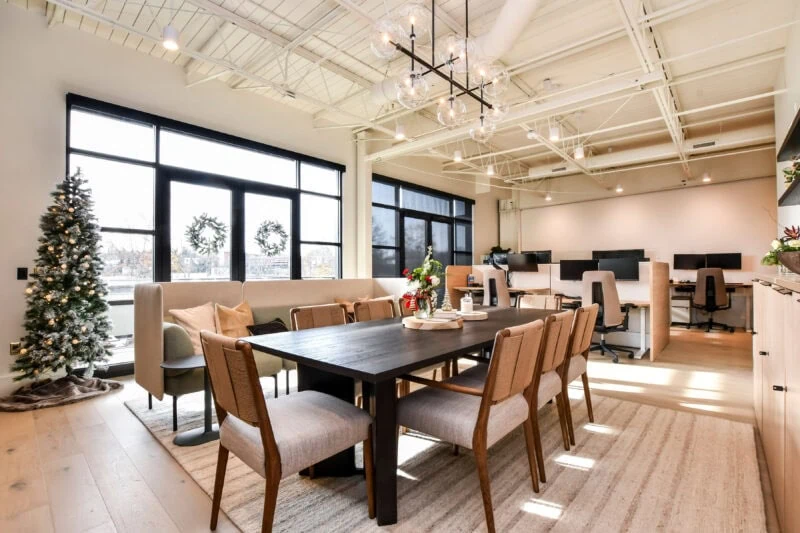
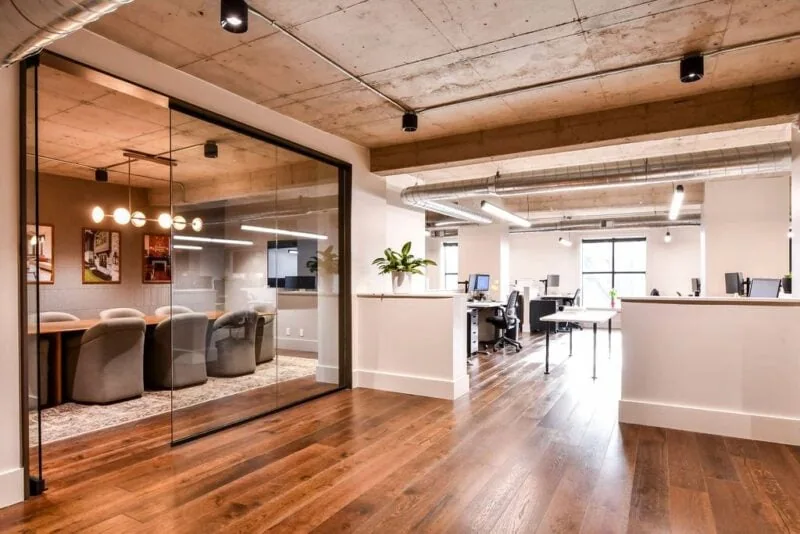
Health and Wellness at Work
Employee well-being has become a central focus in modern commercial office design. Natural lighting, greenery, and biophilic elements create calming spaces, while amenities like larger breakrooms, upgraded appliances, and comfortable lounge areas give employees places to recharge. These details not only support productivity but also make the workplace more inviting.
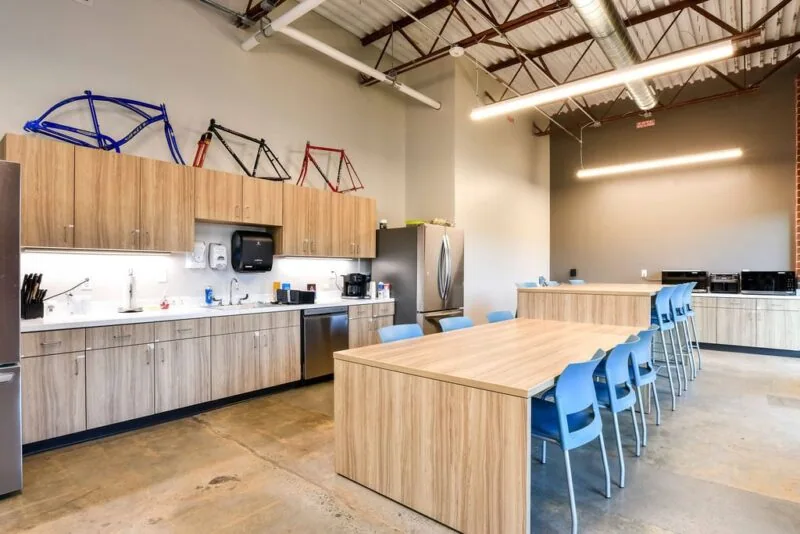
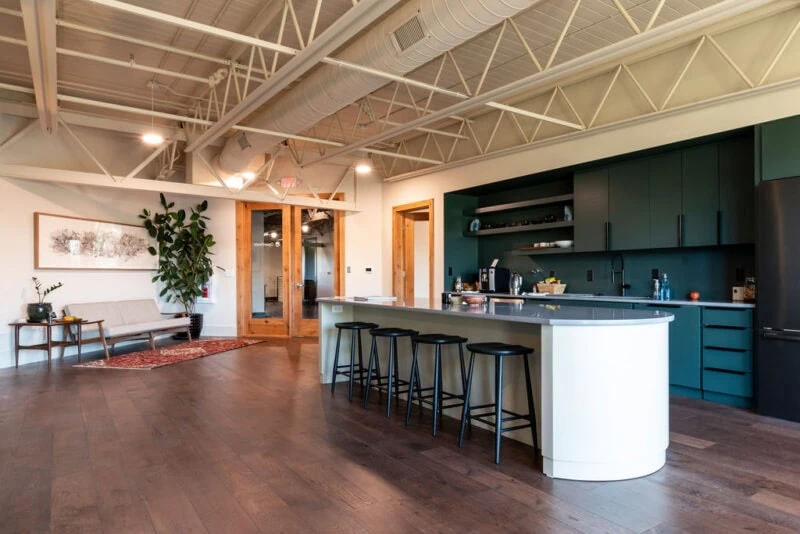
Modular Construction
Modular construction continues to gain traction for its efficiency. By fabricating sections of a building off-site, contractors can reduce on-site construction time and labor needs — a major advantage in today’s market. It also allows for easier expansion in the future, giving businesses flexibility as they grow.
Adaptive Reuse
With limited land availability in high-demand areas, adaptive reuse has become a popular approach. More businesses are turning old or underutilized buildings into modern commercial spaces. This approach not only makes use of existing structures but also creates unique design opportunities that ground-up construction can’t always replicate.
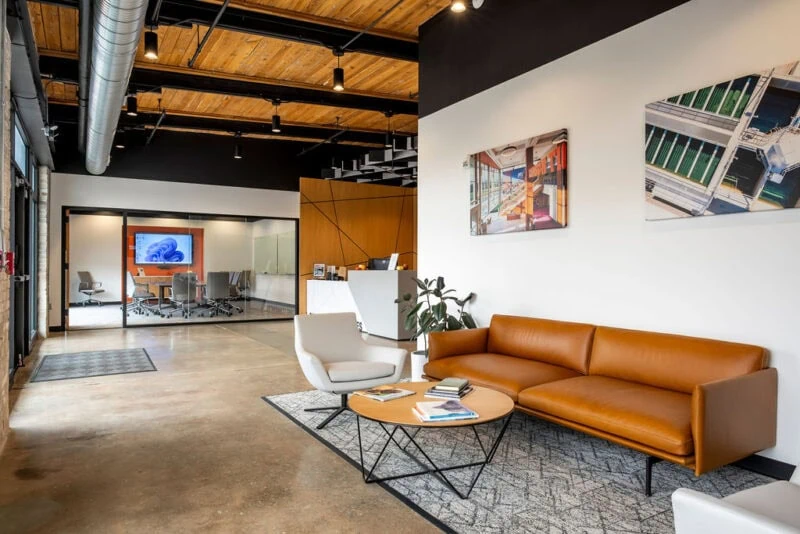
How Smart Technology is Transforming Workplaces
Technology is one of the most powerful forces reshaping commercial construction. Tools like artificial intelligence (AI) and Building Information Modeling (BIM) are helping owners, architects, and contractors plan and manage projects with greater accuracy and efficiency.
AI is increasingly used for project documentation and management, streamlining tasks such as meeting notes and scheduling so teams can focus on big-picture decisions. BIM, meanwhile, allows stakeholders to visualize a space before construction even begins, helping to reduce errors and avoid costly rework.
While 3D printing is still emerging in some regions, innovations like these are setting the stage for smarter, faster, and more reliable commercial builds.
Sustainability Leads the Way
Sustainability continues to be one of the most influential forces in commercial construction for 2025. Business owners are focusing on eco-friendly materials, energy-efficient systems, and smarter building designs that reduce long-term operating costs while lowering environmental impact.
Standards like LEED certification continue to shape how buildings are designed and built, giving companies both a competitive advantage and peace of mind that their spaces are future-focused.
Partner With Ridgeline
As trends shift, one thing remains the same: the need for a trusted partner who can bring vision, expertise, and attention to detail to every project. At Ridgeline Construction Group, we combine innovative design with proven craftsmanship to deliver commercial spaces that stand out.
Contact us today to start your next commercial project.




